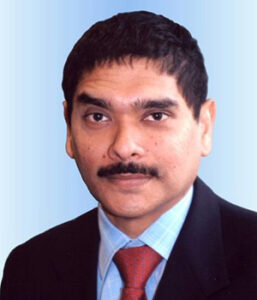BS/MPH: Epidemiology BS / MPH
The accelerated MPH Epidemiology program allows high-achieving undergraduate students in the public health major the opportunity to earn both a bachelor’s and master’s degree in public health in five years, rather than the usual six.
The five-year accelerated graduate program consists of 3.5 years in undergraduate status and 1.5 years in graduate status. You’ll develop relationships with our expert faculty in your freshman year that will grow through graduation and beyond.
The BS/MPH in Epidemiology prepares high achieving students to apply theories and epidemiologic methods to promote social justice and health equity. Students learn foundations of applied epidemiological methods, epidemiologic data analysis, theories of social inequality, social epidemiology, and community partnership building.
Program Type
Accelerated Graduate
Program Format
On Campus
Why I chose public health.
“Epidemiology is the study of population health at a higher level. So you’re looking at patterns and what contributes to disease, rather than specifically looking at how you cure a disease.
I was really interested in these patterns and how social factors and structures contribute to overall patterns of health that we see.”
Jennifer Woo, PhD – Epidemiology

Graduate coursework in Epidemiology bridges theory, research, and practice to prepare students to engage in rigorous, evidence-informed, and reflexive epidemiological practice. Graduates can collect, analyze, and interpret epidemiological data, and work in collaboration with diverse community partners to create social change that improves the public’s health and reduces health inequities.
Through hands-on learning and mentored field placements, accelerated MPH students develop new specialized skills and ways to improve the health of communities. Public health at UWM is your home to learn, connect, and make a difference.
The BS in public health requires a minimum of 120 credits. The MPH with a concentration in Epidemiology requires 49 credits. Up to 30 graduate course credits may be double-counted toward the BS in public health.
Undergraduate Courses
At least 33 credits in general education and foundations courses.
Public Health Major Required Courses (48 credits)
PH 101: Introduction to Public Health (3 credits)
PH 142: Exploring Global Environmental Health (3 credits)
PH 201: Public Health from Cells to Society I (3 credits)
PH 202: Public Health from Cells to Society II (3 credits)
KIN 270: Statistics in the Health Professions: Theory and Practice (3 credits)
Or SOCIOL 261: Introduction to Statistical Thinking in Sociology (3 credits)
PH 302: Health and Disease: Concepts and Contexts (3 credits)
PH 303: Climate Change, the Environment & Human Health (3 credits)
PH 304: Foundations of Epidemiology (3 credits)
PH 319: Introduction to Health Disparities (3 credits)
PH 327: Foundations for Action in Public Health (3 credits)
PH 346: Environmental Health and Disease (3 credits)
PH 355: Public Health Research Methods I (3 credits)
PH 410: True Lies — Consuming & Communicating Quantitative Information (3 credits)
PH 427: Strategies for Action in Public Health (3 credits)
PH 428: Project Implementation & Evaluation for a Healthy Society (3 credits)
PH 455: Public Health Research Methods II (3 credits)
Elective credits — up to nine credit hours to reach 120 credits.
Graduate Courses
MPH Required Common Core Courses (25 credits)
PH 702: Introduction to Biostatistics (3 credits)
PH 703: Environmental Health Sciences (3 credits)
PH 704: Principles and Methods of Epidemiology (3 credits)
PH 705: Principles of Public Health Policy and Administration (3 credits)
PH 706: Perspectives on Community and Behavioral Health (3 credits)
PH 708: Health Systems and Population Health (3 credits)
PH 733: Overview of Qualitative Methods for Public Health (1 credit)
PH 790: Field Experience in Public Health (3 credits)
PH 791: Leadership in Public Health (1 credit)
PH 800: Capstone in Public Health (2 credits)
Required EPI Track Courses (15 credits)
PH 700: Structures of Inequality and Population Health (3 credits)
PH 758: Social Epidemiology (3 credits)
PH 759: Intro to Regression for Understanding the SDOH (3 credits)
PH 761: Epidemiology Field Methods (3 credits)
PH 763: Epidemiology for Equity (3 credits)
Content Electives — Choose one (3 credits minimum)
PH 762: Environmental Epidemiology (3 credits)
PH 768: Cancer Epidemiology (3 credits)
PH 769: Critical Perspectives on Nutritional Epidemiology and the Food System (3 credits)
PH 868: Epidemiologic Links Between Infectious and Chronic Disease (3 credits)
Other classes as approved by MPH faculty advisor.
Electives — Choose two (6 credits minimum)
PH 715: Applied Categorical Data (3 credits)
PH 716: Applied Survival Analysis (3 credits)
PH 717: Applied Longitudinal Data Analysis (3 credits)
PH 718: Data Management and Visualization in R (3 credits)
PH 727: Program Planning and Implementation in Public Health (3 credits)
PH 728: Program Evaluation in Public Health (3 credits)
PH 729: Survey Research Methods in Public Health
PH 779: Public Health Policymaking and Policy Analysis (3 credits)
PH 784: Social and Economic Policy as Health Policy (3 credits)
PH 804: Advanced Epidemiology (3 credits)
PH 823: Applied Analysis of Binary Outcomes in Public Health Research (3 credits)
PH 904: Survey of Analytic Methods for Epidemiology (3 credits)
GEOG 726: Geographic Information Science (4 credits)
URBPLAN 791: Introduction to Urban Geographic Information Systems for Planning (3 credits)
Other classes as approved by MPH faculty advisor.
MPH Epidemiology Track Competencies
- Identify critical social science, social epidemiology, and health equity theories that shape the framing, methods and interpretation of epidemiologic research and practice.
- Identify and describe socio-structural, environmental, behavioral and biological determinants of health and heath equity.
- Systematically gather, critically evaluate and synthesize epidemiological literature and other relevant information to advance population health and health equity.
- Apply appropriate field and surveillance methods to investigate disease outbreaks and assess patterns of exposures and health outcomes in the population.
- Develop self-reflexive and other practical skills for ethical engagement with study participants, communities, and colleagues, in the performance of research and practice activities.
- Select epidemiologic methods and conduct statistical analyses to describe patterns of health and determinants of health, assess associations between exposures and health outcomes while minimizing threats to causal inference.
- Critically evaluate epidemiologic literature with attention to strengths and limitations of the study design, methods, analytic approach, and policy and practice implications.
Please note: All courses are subject to change. Please consult the Academic Catalog for the most up-to-date information. Additional Resources
Accelerated MPH Epidemiology Careers
Graduates from the MPH program with a concentration in Epidemiology go on to work in city, state, or national health departments and governmental organizations, non-profits and community organizations, academic health centers, health care organizations; and companies producing health-related products, among other opportunities.
- Associate Visiting Professor, Epidemiology
- dookeran@uwm.edu
- 414-227-3001
- Zilber 390
- Associate Professor and Public Health Undergraduate Program Director
- malcoe@uwm.edu
- 414-229-7229
- Zilber 352
Epidemiology Faculty Expertise
In epidemiology, faculty research specializations are in the areas of social, community-based, lifecourse and environmental epidemiology. Ongoing research examines health inequities; lifecourse sociocultural and nutritional risk factors for breast cancer; links between psychosocial stress, immune function and chronic disease; social and environmental risk factors for immune dysfunction in aging populations; mass criminalization and community health; the misuse of race as a genetic construct in epidemiologic research; and methodologies for studying gender, race and social class inequalities in health.
Our epidemiology faculty have expertise in: pediatric health, environmental health, infectious disease, aging, nutrition, cancer prevention, violence against women, mental health, structural determinants of health, and community-level interventions.
Epidemiology faculty have collaborated with foreign governments, Indigenous nations, community organizations, community-based researchers, and health justice activists to address children’s environmental health, women’s health and community health. Students enrolled in the epidemiology track of the MPH program will have opportunities to work with a wide array of organizations, such as the AIDS Resource Center of Wisconsin, Diverse & Resilient, and local health departments.
Overall, our BS/MPH epidemiology program integrates themes of social justice theories, with rigorous epidemiologic methods and community practice to prepare students to utilize the tools of epidemiology to study the distribution and determinants of health, and to advocate for social and health equity in their local communities and beyond.



